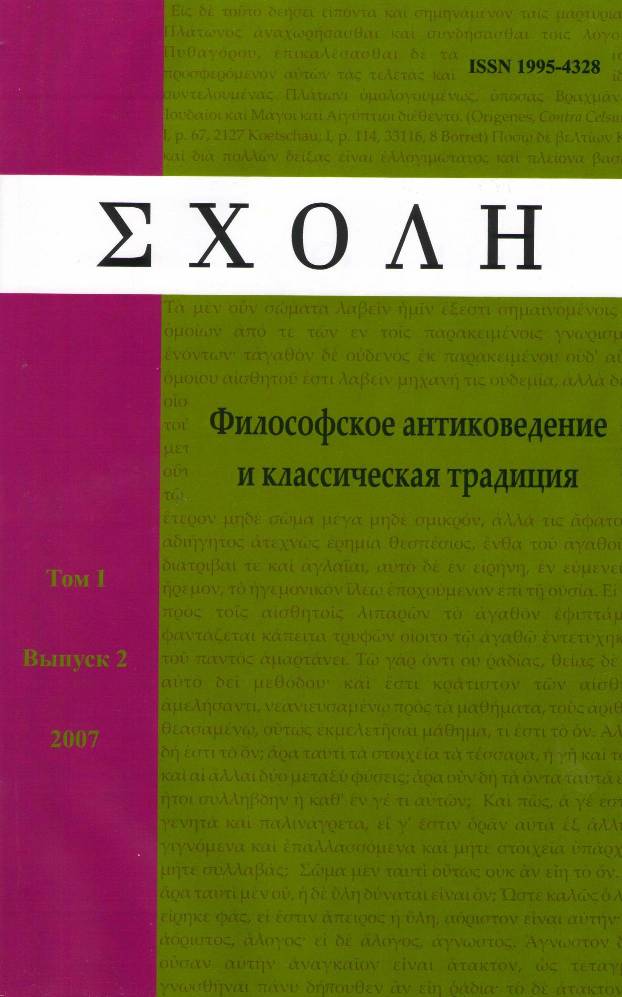«Мера вещей» Протагора как критерий истины
Protagoras’ Homo Mensura as the Criterion of Truth
Author(s): Nadezhda VolkovaSubject(s): Ancient Philosphy
Published by: Новосибирский государственный университет
Keywords: Protagoras; Plato; Sextus Empiricus; criterion of truth; relativism;
Summary/Abstract: The article is about an interpretation of the concept of Measure in the famous thesis of Protagoras (TP) “Man is the Measure of all things” as a criterion of knowledge. The main purpose of this work is to show how the concept of “measure” was gradually transformed into the criterion of truth. The answer to this question can be found in the relevant passages of Plato’s “Theaetetus” and Sextus Empiricus’ “Adversus Mathematicos” and “Outlines of Pyrrhonism”. In the “Theaetetus” Plato represents “the secret doctrine” of Protagoras. According to Ugo Zilioli this doctrine is a robust version of relativism, encompassing different types of it: Relativism of Truth, Relativism of Being and Relativism of Knowledge. Among the other interpretations of the concept of Measure, Plato proposes the following substitution: “to be a Measure” means “to possess the criterion of knowledge”. This replacement allowed Plato to show the internal inconsistency of the TP. In the works of Sextus the concept of Measure in TP is unambiguously interpreted as the criterion of knowledge. For Plato the word criterion is still a philosophical neologism, but in the Hellenistic period it becomes an oft-used philosophical term.
Journal: ΣΧΟΛΗ. Философское антиковедение и классическая традиция
- Issue Year: XIII/2019
- Issue No: 2
- Page Range: 695-704
- Page Count: 9
- Language: Russian

